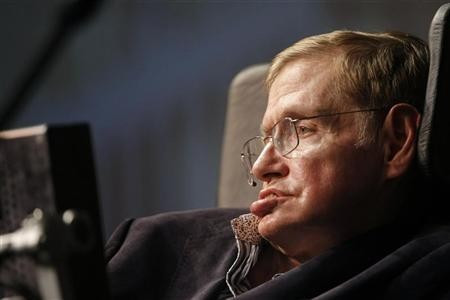Stephen Hawking: Survival of human race depends on colonising planets and end of aggression

Stephen Hawking has said the survival of the human race depends on colonising other planets, and that aggression is the trait that could lead to the demise of humanity.
Speaking at the Science Museum in London, the world-renowned physicist was asked what human faults he would alter if he could.
"The human failing I would most like to correct is aggression," he responded. "It may have had survival advantage in caveman days, to get more food, territory, or partner with whom to reproduce, but now it threatens to destroy us all.
"A major nuclear war would be the end of civilization, and maybe the end of the human race. The quality I would most like to magnify is empathy. It brings us together in a peaceful, loving state."
He added that space travel is our best bet for survival, offering "life insurance" for our species in the future.
"Sending humans to the moon changed the future of the human race in ways that we don't yet understand. It hasn't solved any of our immediate problems on planet Earth, but it has given us new perspectives on them and caused us to look both outward and inward.
"I believe that the long term future of the human race must be space and that it represents an important life insurance for our future survival, as it could prevent the disappearance of humanity by colonising other planets."
This is not the first time Hawking has said space travel will be key to the survival of the human race.
In an interview with Spanish newspaper El Mundo last year, Hawking said it is important to invest in space travel as it "has driven and continues to drive major scientific and technological advances".
Following the visit to the Science Museum, which was for a Guest of Honour prize, Hawking said is was one of his favourite places to visit: "When we were young, my mother used to leave me at the science museum, my sister, Mary, at the national history museum, and my younger sister, Philippa, at the Victoria and Albert museum. At the end of the day, my mother collected us all.
"It helped fuel my fascination with physics and I hope those who visit are similarly inspired by the human ingenuity, curiosity and achievement on display."
© Copyright IBTimes 2025. All rights reserved.






















